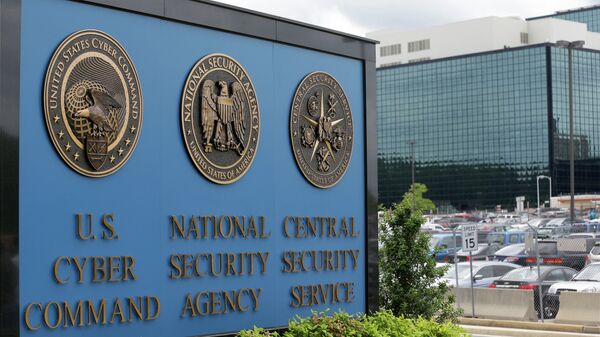Among those guidelines is a provision specifying how information collected under Section 702 of the Foreign Surveillance Intelligence Act (FISA) can be used. As the name suggests, this intelligence gathering operation is directed at foreign intelligence targets, and cannot, by law, be used to intentionally target a US citizen.
However, there have been “legitimate questions” about “incidental collection,” explained Robert Litt, the General Counsel for the Office of the Director of National Intelligence, speaking at the Brookings Institute on Wednesday.
“We are inevitably going to collect the communications of some US persons either because they’re talking to our foreign targets or in some limited circumstances because we cannot technically separate the communications we’re looking for from others”, Litt explained.
![I don’t know that there’s any case in which information actually collected under Section 702 has been used [against a US citizen], said Robert Litt, General Counsel for the Office of the Director of National Intelligence. I don’t know that there’s any case in which information actually collected under Section 702 has been used [against a US citizen], said Robert Litt, General Counsel for the Office of the Director of National Intelligence. - Sputnik International](https://cdn1.img.sputnikglobe.com/img/101779/33/1017793377_0:0:5184:3456_600x0_80_0_0_52cedca48cc147f3ee17ec2aae83018d.jpg)
While all the bodies that might access such information — like the CIA or the FBI — will develop different procedures tailored to their agencies, Litt said that “all of the procedures will ensure that information about US persons incidentally collected pursuant to section 702 is only made available to analysts and agents when it’s appropriate.”
“Appropriate” could still mean in a court case involving a US person, however, if the case is “related to national security or for certain other enumerated serious crimes, and only when the Attorney General approves, ” Litt explained.
Those “serious crimes” include “crimes involving death, kidnapping, substantial bodily harm, conduct that is a specified offense against a minor (as defined in a particular statute) incapacitation or destruction of critical infrastructure, or the legitimate privacy interests of other persons around the world.”
Past Intel Use Unclear
This statement raised questions among reporters as to what the policy had been before these reforms and to what extent information ostensibly aimed at foreign targets had actually been used against US citizens.
— Blog Zombie (@emptywheel) February 3, 2015
Litt explained that there had previously been a strong incentive to not introduce such “incidental” intelligence, since it would mean disclosing operations the US wasn’t publicly discussing in the past.
“If you use the intelligence information in a criminal case you have to expose the capability, you have to litigate it, ” said Litt, adding that he couldn’t name any such case.
“There have been very very few cases in which — I don’t know that there’s any case in which information actually collected under Section 702 has been used. And I think there have not even been that many cases in which information derived from collection under 702 has been used.”
While these reform guidelines are meant to restrict intelligence gathering, in this instance, it may do the opposite.
“What this does ensure is that, going forward — now that the 702 program is public — is that some of those constraints would be lessened,” said Litt, repeating that “We’re only going to use it in the most serious kind of cases.”
This provision is one of three pertaining to incidental collection under Section 702. The other two outline new, stricter procedures for querying the information, and requirements to delete information on US person that has been found to lack foreign intelligence value.
In December 2013, The president’s own Review Group recommended requiring the government to get a warrant before querying the information tied to US persons in its database but that recommendation was rejected.
In response to a reporter’s question as to why such a warrant would be too onerous, Litt rejected the idea that this is “backdoor” surveillance on Americans, and that it’s perfectly normal that a warrant wouldn’t be required. “Generally speaking the rule is, if we lawfully acquire information, we can search it.”



